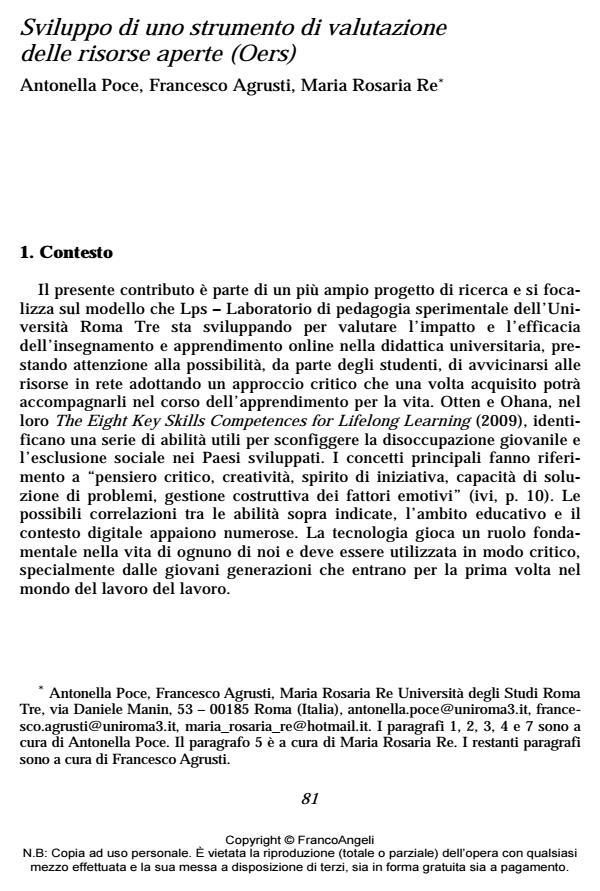A tool for Oers evaluation
Journal title CADMO
Author/s Antonella Poce, Francesco Agrusti, Maria Rosaria Re
Publishing Year 2016 Issue 2015/2
Language Italian Pages 18 P. 81-98 File size 482 KB
DOI 10.3280/CAD2015-002008
DOI is like a bar code for intellectual property: to have more infomation
click here
Below, you can see the article first page
If you want to buy this article in PDF format, you can do it, following the instructions to buy download credits

FrancoAngeli is member of Publishers International Linking Association, Inc (PILA), a not-for-profit association which run the CrossRef service enabling links to and from online scholarly content.
This paper is part of a wider research project and focuses on the model adopted for evaluating the impact and effectiveness of online teaching and learning, enabling students to adopt a critical approach which could be extended to any online resource which they may use for their lifelong learning. Technology plays a fundamental role in everyone’s life and must be approached critically, especially by young people entering the labor market for the first time. The Laboratory for experimental pedagogy (Lps) based at the Department of Education – Roma Tre University has been working, since 2010, on research focusing on the enhancement of students’ critical thinking skills to foster the development and promotion of the critical use of technology in education. The present contribution describes how giving students the tools to carry out an evaluative analysis of the resource they are accessing can enable them develop their analytical and critical thinking skills. It can also help them gaining insight into the importance of "learning to learn" and independently evaluate the quality of online digital resources both as learners and future educators. Doing so it is possible to overcome "brief term instrumental characteristics" of tools and promote long term evaluation processes (Vertecchi, 2012).
Keywords: Oer, higher education, teaching evaluation, critical thinking, learning to learn.
- Innovations in Learning and Technology for the Workplace and Higher Education Antonella Poce, Maria Rosaria Re, Carlo De Medio, Mara Valente, Alessandra Norgini, pp.257 (ISBN:978-3-030-90676-4)
Antonella Poce, Francesco Agrusti, Maria Rosaria Re, Sviluppo di uno strumento di valutazione delle risorse aperte (Oers) in "CADMO" 2/2015, pp 81-98, DOI: 10.3280/CAD2015-002008